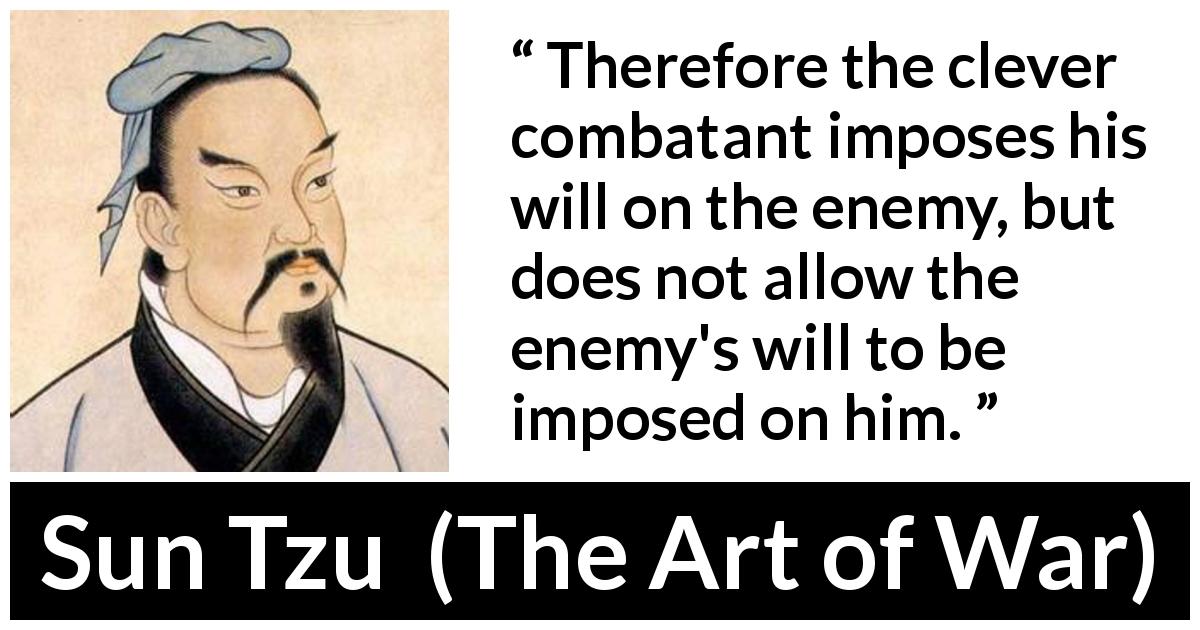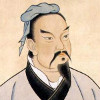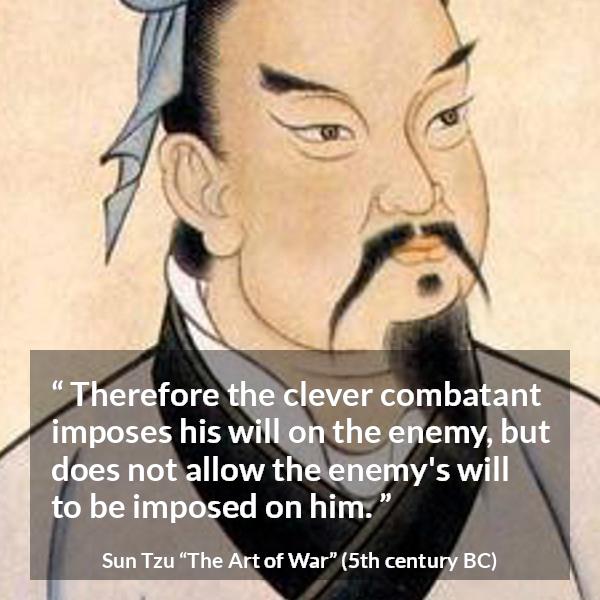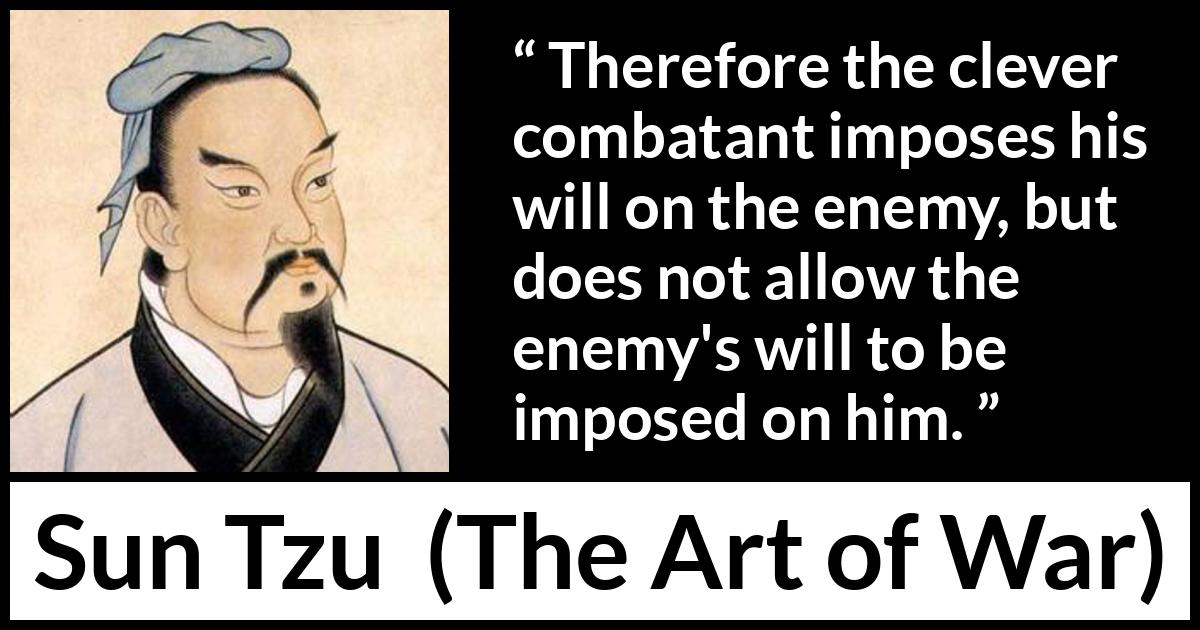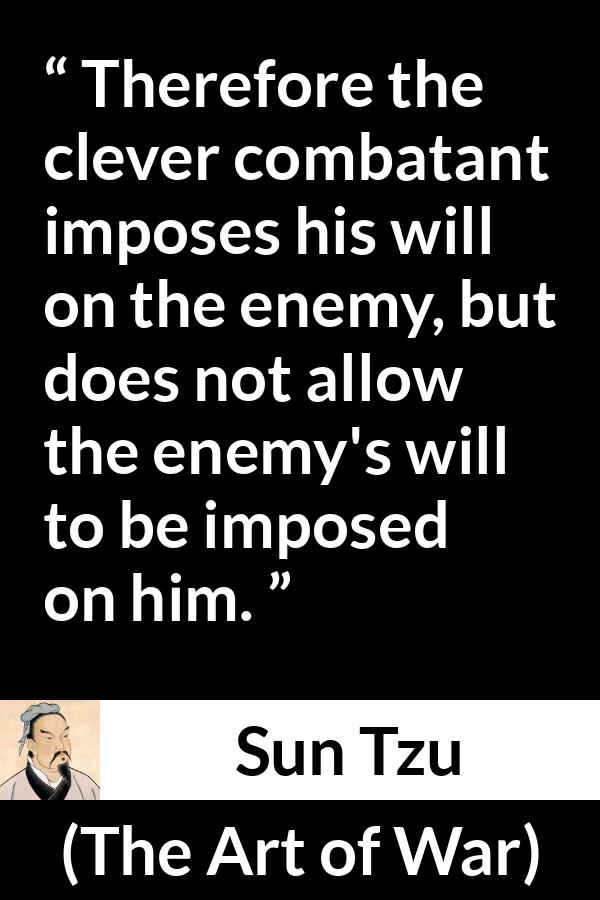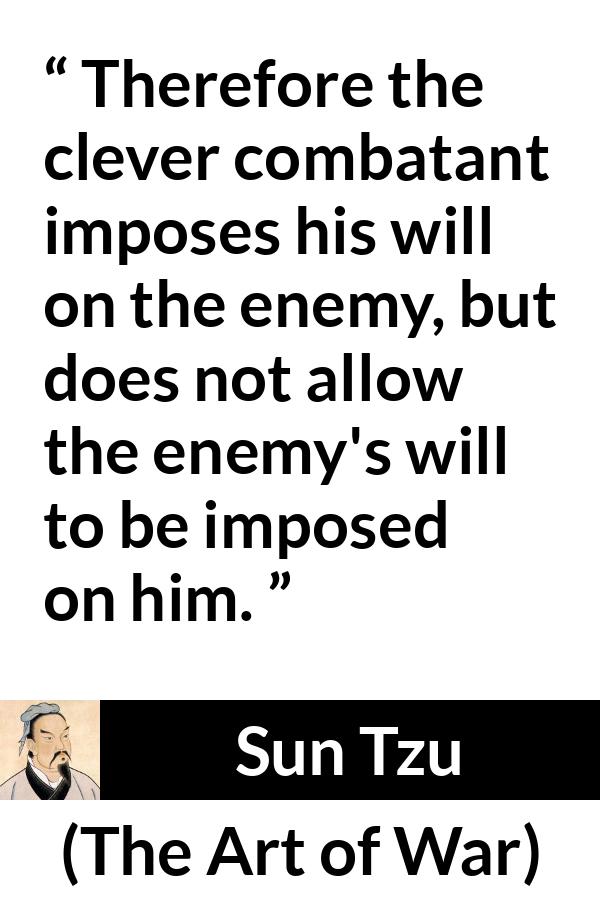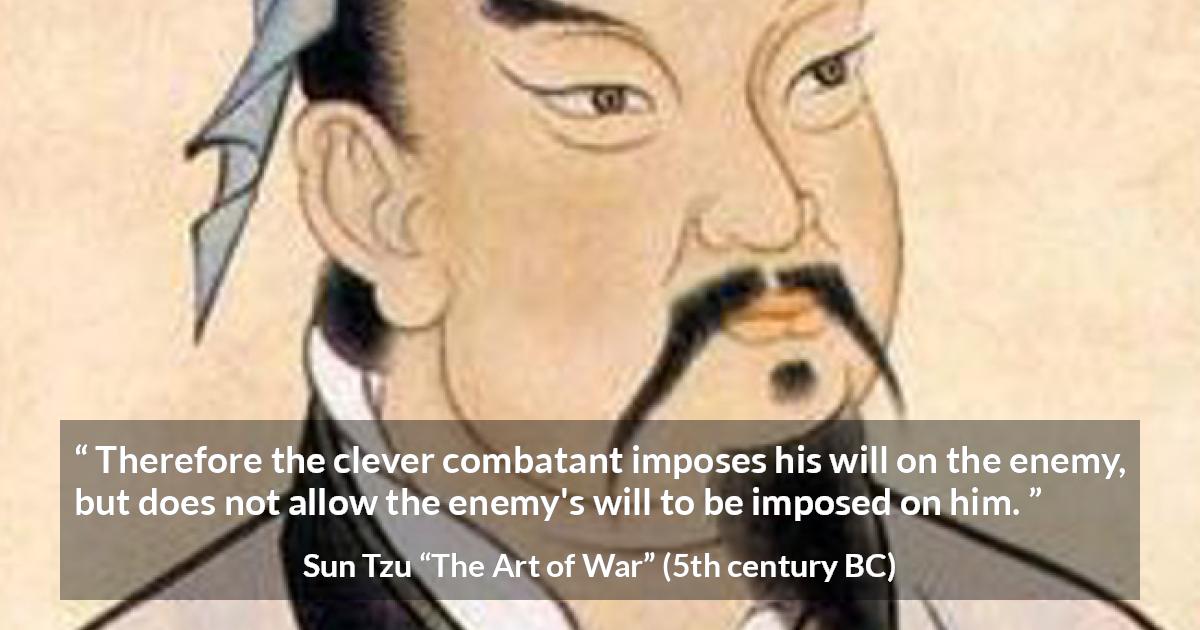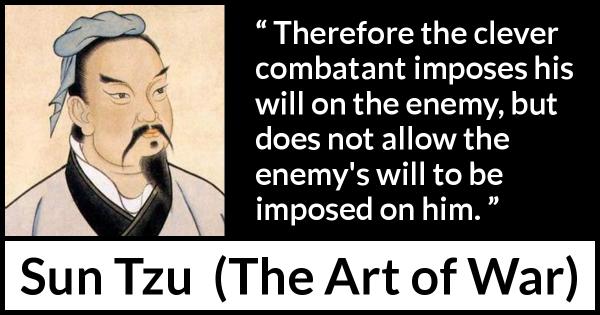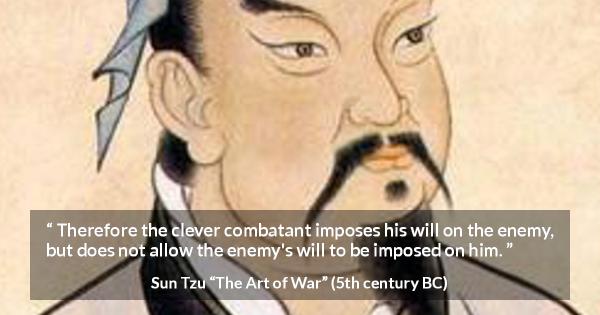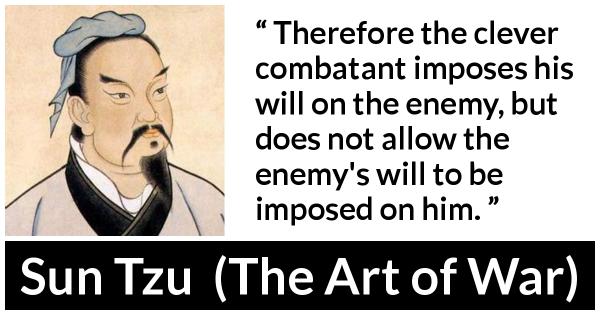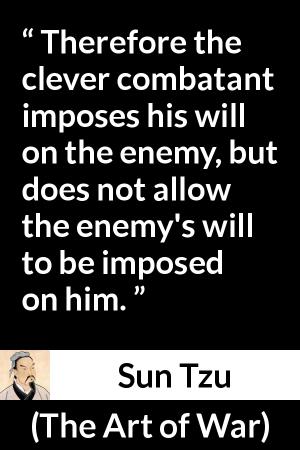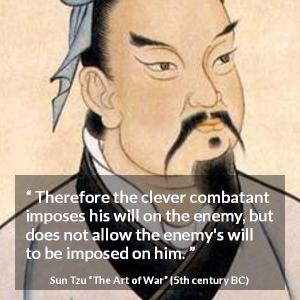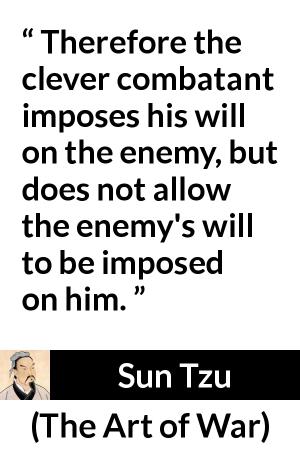“ Therefore the clever combatant imposes his will on the enemy, but does not allow the enemy's will to be imposed on him. ”
Sun Tzu, The Art of War (5th century BC). copy citation
| Author | Sun Tzu |
|---|---|
| Source | The Art of War |
| Topic | enemies will cleverness combat |
| Date | 5th century BC |
| Language | English |
| Reference | |
| Note | Translated by Lionel Giles |
| Weblink | http://www.gutenberg.org/files/17405/17405-h/17405-h.htm |
Context
“
1. Sun Tzu said: Whoever is first in the field and awaits the coming of the enemy, will be fresh for the fight; whoever is second in the field and has to hasten to battle will arrive exhausted.
2. Therefore the clever combatant imposes his will on the enemy, but does not allow the enemy's will to be imposed on him.
3. By holding out advantages to him, he can cause the enemy to approach of his own accord; or, by inflicting damage, he can make it impossible for the enemy to draw near.
4. If the enemy is taking his ease, he can harass him; if well supplied with food, he can starve him out; if quietly encamped, he can force him to move.” source
1. Sun Tzu said: Whoever is first in the field and awaits the coming of the enemy, will be fresh for the fight; whoever is second in the field and has to hasten to battle will arrive exhausted.
2. Therefore the clever combatant imposes his will on the enemy, but does not allow the enemy's will to be imposed on him.
3. By holding out advantages to him, he can cause the enemy to approach of his own accord; or, by inflicting damage, he can make it impossible for the enemy to draw near.
4. If the enemy is taking his ease, he can harass him; if well supplied with food, he can starve him out; if quietly encamped, he can force him to move.” source
